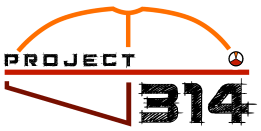According to the Exodus narrative, most of the Tabernacle materials came from the Hebrews with hearts that prompted them to give, with the exception of the silver—which was collected by means of a relatively small and one-time
flat "sanctuary shekel" tax.
For better and for worse, circumstances today are drastically different than they were in the times of Moses over three thousand years ago. For example, Moses' entire audience
had the benefit of hearing and understanding God's revelation in their native Hebrew tongue, and not were misled by dysfunctional translations, or misled by many centuries of absurd religious traditions, as people are
today. Thus, in a similar way that the ancient Hebrews were liberated from Egypt, today's believers must first be liberated by receiving a clear understanding of Moses' revelation before embarking upon true
Tabernacle work.
Although Moses is no longer with us in the flesh to further describe the pattern that he was shown and the tent that he built, a variety of Project 314 educational materials have
been created to help the user understand Moses' writings and understand what he described. Purchasing one of these products might be likened unto donating a "sanctuary shekel" to help restore God's ancient dwelling
place.
In addition to the aforementioned educational products, a Patreon account has been established for those who are truly interested in furthering these Tabernacle projects. Through the Patreon platform, Tabernacle project patrons are given a means whereby they can not only support the project on a periodic or monthly basis, but they are also given a means to engage Tabernacle teachings and project participants on a much more personal and intimate level. Hoever, without support, the introduction of new or additional materials is not viable or sustainable, as the development of materials to date has been time consuming and highly inefficient (given limited personal proficiency and required training time) as work cannot be delegated to specialists (including writers, editors, artists, drafters, designers, video editors, engineers, machinests, carpenters, leatherworkers, etc., see Volunteering Time for details)
Click to Support

Tabernacle Projects
Although contributing to Project 314 Tabernacle education efforts via Patreon is a great start, there are other aspects of the project which lend themselves to other means of organization and funding. After
all, the original Tabernacle was not created by means of people dropping coins in their favorite street performer's hat. Instead, the ancient Exodus Tabernacle was only made possible by a community of hundreds
of thousands of people who saw the benefit of building God's dwelling place within days or perhaps even hours of receiving the instructions to build. As such, until there is an increase in public education and
interest, it will be impractical to establish ambitious building goals.
So how much would it require to fully fund the Tabernacle project? For a point of reference, there were just over 600,000
adult male Hebrews during the time of the Exodus; while the Tabernacle might be equated to around $50,000,000 in today's dollars given the value of the Tabernacle materials and labor. To put things into better
perspective, this amounts to a mere
$83 per household—which frankly pales in comparison to church or synagogue construction budgets!
So how might the project progress if not fully
funded? Obviously, the less that the public reaps, the less it will be able to sow, as shown below.
As indicated in the abbreviated lists above, in the brochure, and in the project overview, there is no shortage of vision, ambition, or aspirations
with Project 314 and Project Betzalel; however, there is far more work to do than one man could accomplish in a lifetime (Noah and sons being an exception, perhaps). Nevertheless, there remains a shortage of public
understanding and familiarity, which unfortunately equates to insufficient "market demand" for call immediate and full project funding. A compromise in project funding, of course, relates to a temporary or partial
curtailment in project scope.
Although most project work accomplished to date has typically been prioritized in accordance with perceived public value, due diligence, available resources, or some
form of sequential cause-effect reasoning, future project work might be considered to be more arbitrary from a priority or approach standpoint, meaning that it may be prioritized more in accordance with public input.
While
the law of diminishing returns and "utilitarian ethics" (whereby resources are allocated in places where they are believed to be poised to have the largest social impact with the smallest investment of money, time,
and effort practical) will continue to play a role in future project task prioritization, donors are also regarded to be project stakeholders, and are therefore encouraged to provide project priority input, as outlined
in the donation form below.
As you make your donation, please make a note as to which Tabernacle-related task or tasks that you'd like to see prioritized in the comments field . However, please note that there are no commercial guarantees that project work will be conducted in accordance with preferences expressed within the user form above, and that donations may be reallocated to other project tasks until
or unless definitive budgets are developed for fixed scope aspects of the project. Please
Contact us before contributing in the event that funding must be allocated for specific purposes or under predefined conditions.
